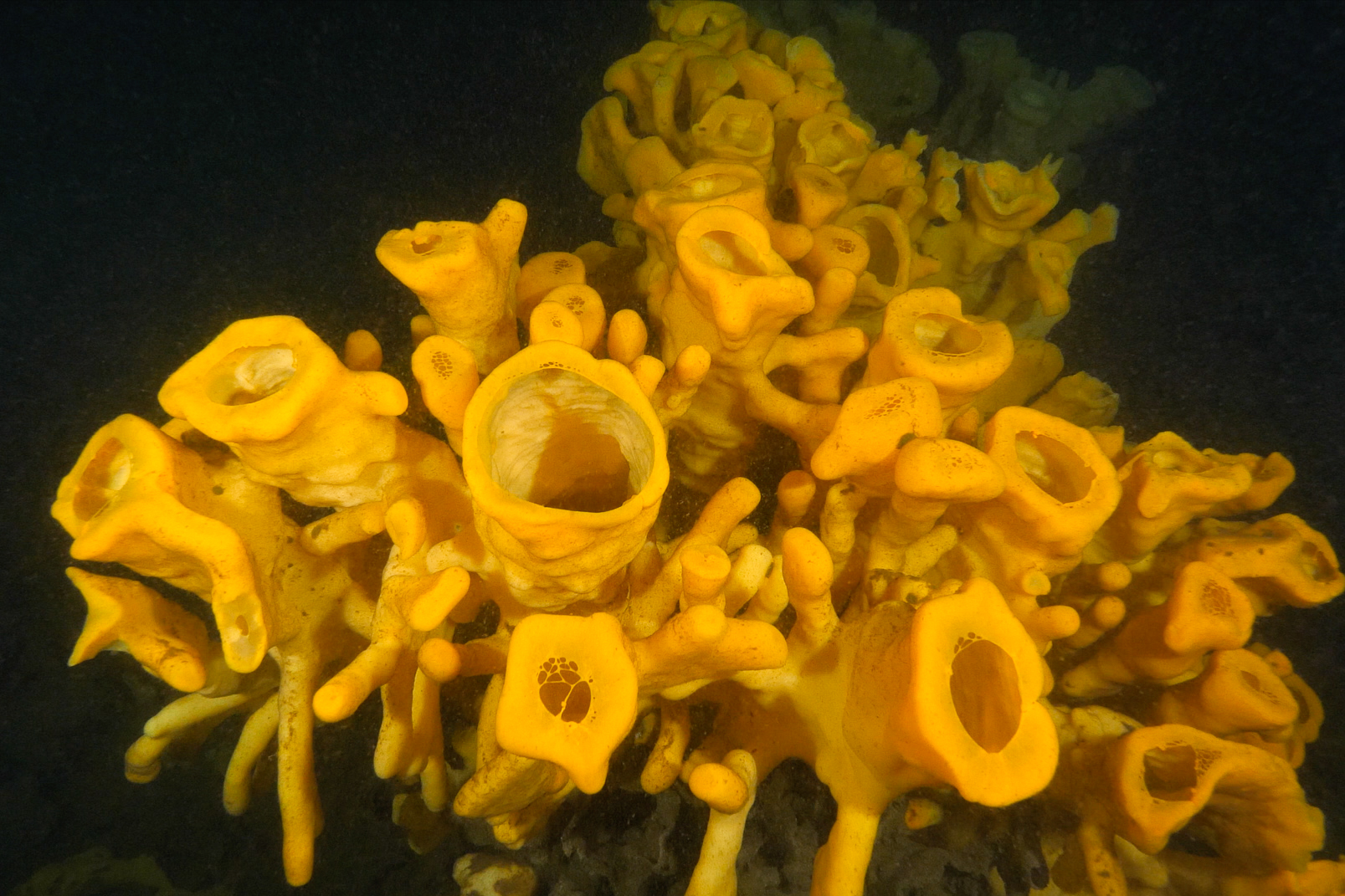Unceded Coast Salish Territory/Vancouver, BC — A new report from Ocean Wise has updated the health status of Howe Sound for 2020. While there is cautious optimism with some health ratings improving, the Ocean Wise report still has many labelled as critical or cautious, including glass sponge reefs which “remain vulnerable to mechanical damage and climate change.” The report recommends implementing full protection of glass sponge reefs throughout all of Howe Sound.
Long thought extinct, glass sponge reefs mainly grow off BC’s coast. Not only do these reefs provide important habitat for ocean life such as prawns and rockfish, they also filter ocean water, provide fertilizer for plankton, and store carbon.
Glass sponge reefs are particularly vulnerable to shattering from bottom contact fishing such as prawn traps as they are composed of the same material that makes glass. A DFO survey, in cooperation with the Marine Life Sanctuaries Society, not only discovered a dead reef near Ellesmere Creek at the north end of Howe Sound, but found historical damage from fishing activities in all of the surveyed reefs.
Climate change poses an urgent and even larger problem. A study cited by the Ocean Wise report included observation of glass sponge reef mortalities associated with the El Niño climate events of 2009/2010 and 2015/2016. Additionally, a study from UBC found that warming ocean temperatures and acidification drastically reduce the skeletal strength and filter-feeding capacity of glass sponges.
In March 2019, DFO announced the closure of the nine documented glass sponge reef complexes to bottom-contact fishing. A DFO report published earlier this year confirmed five more living glass sponge reefs in Howe Sound. However, these reefs are still open to bottom-contact fishing such as prawn trapping. Even if reefs are damaged, there are no threats of fines or legal recourse for the harmful activity.
Glass sponges are under siege from multiple threats. Without the chance to grow and expand, glass sponges will lock away less carbon, exacerbating the effects of climate change. “By removing the threat of bottom-contact fishing, glass sponges will be better able to adapt to a changing ocean,” says Ross Jameson, Ocean Conservation Manager for Canadian Parks and Wilderness Society British Columbia Chapter. We need the immediate designation of fishing closures for all of Howe Sound’s glass sponge reefs to protect these rare creatures for generations.
-30-

